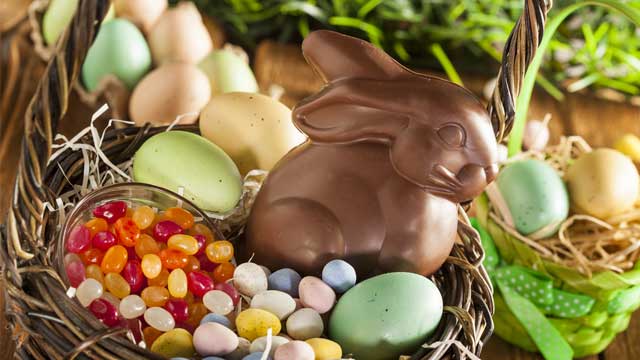We would like to wish everyone a Happy Easter, and for all the kids, a great holiday break!
With the abundance of all those yummy Easter eggs and sweet treats in the supermarkets, it is important that we remember not to neglect our dental health.
Of course, these Easter treats are for your enjoyment and it’s ok to have them, but remember to not over indulge and ensure that you continue to look after your teeth and gums.
Not to bore you too much, but it is important to know how tooth decay actually starts, so that you can be aware how to prevent it! Tooth decay occurs when we consume food and drink containing sugar. Bacteria in the plaque on our teeth can convert the sugar into acid.
This acid then attacks the surface of the teeth, causing it to weaken or ‘demineralise’. This causes considerable irreversible damage to the teeth and leads to cavities or holes in those precious pearly whites.
Suggestions to enjoy those Easter eggs and avoid dental decay:
1. If you feel can’t resist munching on some chocolate easter eggs, try to enjoy it at mealtimes (for example, for dessert straight after dinner) rather than in between meals. This avoids the the number of times a day (frequency) your teeth are in contact with sugar.
‘In between meals’ – generally means:
- morning break
- afternoon snack
- midnight snack
- TV/movie munchies (popcorn, chips)
- sipping fizzy/sweet drinks throughout the day
- sucking on lollies
- ‘feeling hungry and looking in to the fridge/cupboard’ moments
- dessert shop stops, e.g. ice creams, etc…
2. Eat a small piece of sugar free chewing gum after a meal or sugary treat. Chewing gum can help to stimulate saliva, neutralise acid and keep bacteria from sticking to the surface of the teeth. Saliva also has calcium in it to help with remineralising tooth enamel.
3. Drink a glass of water after eating those Easter eggs. This helps to wash away the sugars that can cause decay. Fluoride found in tap water will also help protect your teeth.
4. Brush your teeth well with a soft toothbrush and fluoride toothpaste, at least twice each day.
Article originally published at yournewteethnow.com.

